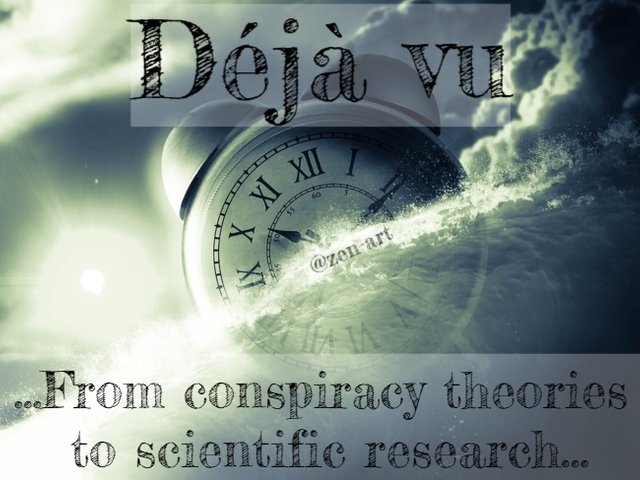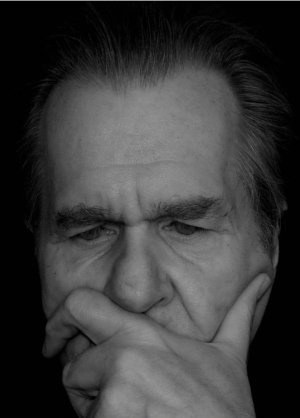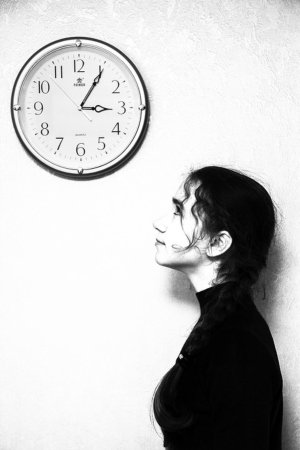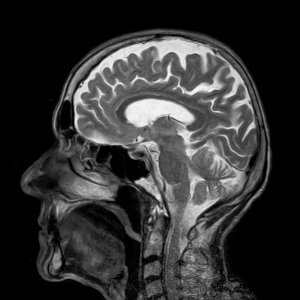From memories of our past lives, connections to ourselves in different realities and just a glitch in the matrix, deja vu has been sparkling human interest and creating more questions than answers. I am sure that many of you have experienced it too. Maybe you were taking part in a conversation and got a familiar feeling you were there before, in that same situation with those same people and talking about the same thing. Deja vu happens more often than you think and from the scientific point of you, a glitch is currently the best explanation for it. It is not, however, a glitch in the matrix but the one in your brain.

Determening how common is deja vu is very tricky. Not only are we unable to ask everyone in the world and are therefore left with studies that took part in small groups of people but there is also the problem with the question itself. Surveys can give us quite different results depending on who we ask and what we ask. People can give very different answers depending on the definition we give of déjà vu so we can say that everyone experiences it and that only a few do.


"Déjà Vu" is an intuitive experience that many people experienced at least once in their lives. It is pronounced day-zhaa voo, and is French for “already seen.” It is usually described as an overwhelming sense of familiarity with something that shouldn't be familiar. There are some estimations that more than 70 percent of people experienced some form of it.
Can you trust your brain?
The answer to this question is always NO. This is why being objective is a must in science and personal experiences never play a vital role. Our minds are amazing but they do have a big flaw, they create false memories and always look for patterns, even when they are not there. This is a good thing. If it were not for the ability to look for patterns, as a species, we would not have survived. Our brains are wired in looking for familiarity and patterns and they have been doing it nicely because we observed migration on animals, looked for clues of good genetic in our partners and tracked down the movement of celestial bodies. But if we can not trust our brain, who or what can we trust? Our brains, we can trust our brains. Wait... What?
Feeling right or feeling wrong?
There are situations that are deja vu and those that do not fall into that category. It all depends on your feeling of familiarity, is it right or is it wrong? We use our memory all the time and we are almost all the time in situations that are familiar with those we have already been in. You can feel very familiar with something and even remember (or not) that you were in that exact situation before and feel right. When something feels too familiar, whether it is a thing you recognize or not, and the familiarity feels wrong, that is deja vu. With deja vu, that sense of familiarity comes suddenly and it fades away as quickly as it came and you are left with your thoughts about what just happened.


Don't you just love a good mystery? I sure do. The cause of deja vu is still considered to be a mystery regardless of some serious scientific effort to shine some light on it. The only firmly associated with thing is temporal-lobe epilepsy. Yes, epilepsy. Déjà vu can occur just prior to a temporal-lobe seizure. People suffering a seizure of this kind can experience déjà vu during the actual seizure activity or in the moments between convulsions and this tells us that déjà vu is probably linked to the temporal lobe of the brain. One answer and yet another question, why do then people without epilepsy experience it?
Findings are interesting...
In their article
No, you haven't read this déjà vu story before from 2016, CNN posted some findings from déjà vu researcher Anne Cleary, a professor of cognitive psychology at Colorado State University
- ages 15 to 25 tend to have the most occurrences of déjà vu
- Déjà vu is more closely associated with those who watch a lot of movies and tend to travel
- Research associated the phenomenon with temporal-lobe epilepsy
MRI scans revealed the truth...
In 2016., a team of researches from the UK triggered déjà vu by encouraging false memories in the minds of the study participants. They looked at the MRI scans and found out that it wasn't the parts of their brains related to memory ( hippocampus) which lit up on those scans but surprisingly, those related to decision-making (frontal areas). The conclusion was that we are trying to find an error in our memories while we are remembering them. Akira O’Connor from the University of St Andrews presented their work at International Conference on Memory in Budapest and concluded how frontal regions probably monitor our memories as they are replayed, looking for errors in their content and becoming activated when they spot an irregularity.
Still more reasearch to come...
Anne Cleary did another research in March 2018 that expanded to test déjà vu's predictive abilities. After giving her participants different scenes to watch, she gave them thematically different scenes that were spatially mapped to the previous ones and asked if they were experiencing déjà vu, and whether they felt like they knew what the last scene should be. Half of the respondents reported a strong premonition associated with déjà vu but they did not produce the correct answer. The professor is conducting follow-up experiments and states the following:
"I think the reason people come up with psychic theories about déjà vu is that they are these mysterious, subjective experiences. Even scientists who don't believe in past lives have whispered to me, 'Do you have an explanation for why I have this?' People look for explanations in different places. If you're a scientist, you're looking for the logical reason for why you just had this really weird experience."
Anne Cleary
Freud thought it was prompted by repressed desires but then again, didn't he think those were the reason for everything? From Émile Boirac who first used this term to scientists in our day and age, this mystery really puts more question marks on our sentences that it does dots. For now, we still lack the advanced technology to test the theories, but Naveed Saleh M.D., M.S. explained how science now has 4 of them.


For people without psychosis or temporal lobe epilepsy, the causes of déjà vu fall into four categories—attentional, memory, dual processing, and neurological.
ATTENTIONAL
There is an initial perception that is made under degraded attention, after which the second perception under full attention comes. We start doing something and are distracted, when we come back to what we were doing, it may seem further into the past than it really is.
MEMORY
People encounter countless things during the course of a day but don’t pay attention to all of the information. Something may be familiar even when the source of familiarity has been forgotten.
NEUROLOGICAL
Neurological explanation for deja vu is a small seizure in temporal lobe or a delay in neuronal transmission between the eyes, ears, or other perceptual organs and higher-order processing centers in our brain.
DUAL PROCESSING
This explanation is the most popular one. It states how two synchronous cognitive processes become momentarily asynchronous. Familiarity and retrieval just as perception and memory could become asynchronous. Despite the popularity of this explanation, since it can not be empirically tested and is theoretical, attentional and memory explanations are the only ones which are currently supported by the science community.


The conclusion of this post came with no surprise. We do not know more than we do. Our brains still present an endless area for research, if only there were people who knew what to do with them. Oh wait, they are but they are someplace else. Pitty...

Maybe deja vu is us trying to send ourselves a message across time and space. Maybe those are echoes from our past lives or maybe we are just having an epilepsy attack. Imagine how much answers we could get if science finally got his head out of the military and focused its attention on important topics. Imagine all the things we could find out instead of what projectile travels the farthest and what type of remote control could navigate it. Humanity will not be saved by gurus and religious leaders. Our world will change only when scientists start to boycott military projects. We know so little about our brains, and why? Because there is no funding for that. There is no profit in that. For those of you who work or promote science for the science sake, I salute you. You will change the world. Keep your mind sharp and think on. There are more of you than you think. Good luck.
Have you had a déjà vu
about or while reading this?
To learn more about this topic, be sure to check out these resources:
What is déjà vu? from science.howstuffworks.com
Science is on verge of understanding déjà vu from www.mnn.com
Déjà Vu: An Illusion of Prediction by Anne M. Cleary, Alexander B. Claxton
Investigating the Role of Assessment Method on Reports of Déjà Vu and Tip-of-the-Tongue States during Standard Recognition Tests
Temporal Lobe Epilepsy (TLE)
No, you haven't read this déjà vu story before
4 Possible Explanations for Déjà Vu
How Does Déjà Vu Work?
Scientists May Have Finally Explained Déjà Vu from iflscience.com
What is Déjà vu?
KEEP YOUR SMILE ON &
RESPECT YOUR INNER GENIOUS!


Image sources:
- cover image is from pixabay and is free for personal and commercial use, it can be found
here
- cat clipart in my titles is from pixabay and is free for personal and commercial use, it can be found
here
- images used in the post are from pixabay too and you can find them by following these links:
geralt,
toubibe &
ElizabethLi
PROUD MEMBER OF:



@steemitbloggers



















I remember having strong deja vu when I was a kid, it would freak me out so much that Id just walk away from situations. As Ive gotten older I think I still experience them but I attribute it to nothing more than my mind playing tricks on me and quickly disregard it as fast as it happens. If I had to guess what it actually is, I would say its the mind processing things into memory as fast as you're experiencing them, which simultaneously tricks your brain into believing you're living out a situation you've already experienced. Even though that's not the case. I remember and get the strong feeling I can predict what someone is going to say, but when I've realized it's happening and tried to actually say what they'll say before they say it, I cant, even though it feels like I should be able to.
There's a world of knowledge that we are missing about perception. I always believed that ghosts are some kind of residual energy left by people who inhabited a specific place. Maybe the Déjà vu is something related to that.
I remember feeling one when I was 6, I felt like I was seeing myself in the classroom from outside doing the exact same things. Almost 20 years ago and I still remember it.
Thanks for sharing!
This post has been voted on by the steemstem curation team and voting trail.
There is more to SteemSTEM than just writing posts, check here for some more tips on being a community member. You can also join our discord here to get to know the rest of the community!
A second chance given to you by your future self...
Namaste, JaiChai
Congratulations! This post has been upvoted from the communal account, @minnowsupport, by zen-art 💚 from the Minnow Support Project. It's a witness project run by aggroed, ausbitbank, teamsteem, theprophet0, someguy123, neoxian, followbtcnews, and netuoso. The goal is to help Steemit grow by supporting Minnows. Please find us at the Peace, Abundance, and Liberty Network (PALnet) Discord Channel. It's a completely public and open space to all members of the Steemit community who voluntarily choose to be there.
If you would like to delegate to the Minnow Support Project you can do so by clicking on the following links: 50SP, 100SP, 250SP, 500SP, 1000SP, 5000SP.
Be sure to leave at least 50SP undelegated on your account.
Love this one sweets.
Spot on. I always looked at de ja vu as one of a few things but still have no real comprehension of what it is:
Fascinating post @zen-art, deja vu is a mystery, forgotten memories from another time or perhaps memories of our ancestors passed on through our dna? Very interesting!
Your post has been selected as the @steemiteducation Post of the Day:)
Join us in our Discord channel here to drop your post in our post promotion page, and make sure to use the #steemiteducation tag in the post itself.
Reading thoroughly tomorrow
I have them all the time, almost to annoyance
Hi @zen-art!
Your post was upvoted by utopian.io in cooperation with steemstem - supporting knowledge, innovation and technological advancement on the Steem Blockchain.
Contribute to Open Source with utopian.io
Learn how to contribute on our website and join the new open source economy.
Want to chat? Join the Utopian Community on Discord https://discord.gg/h52nFrV